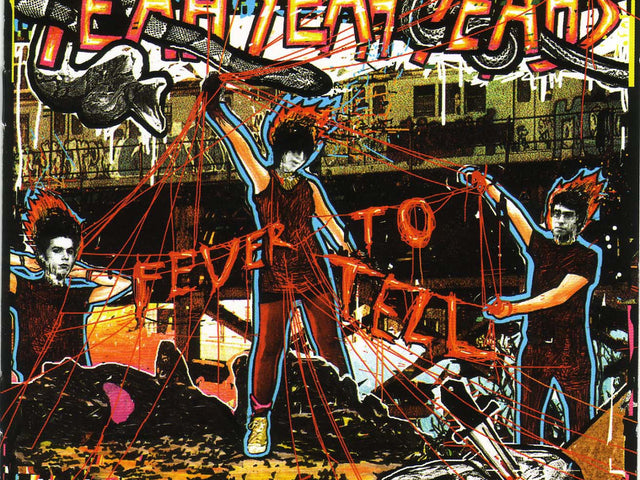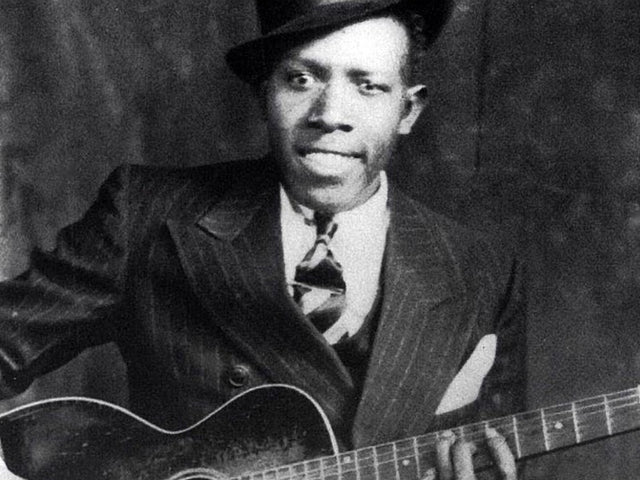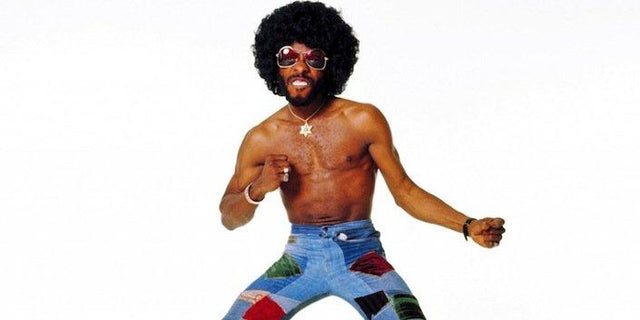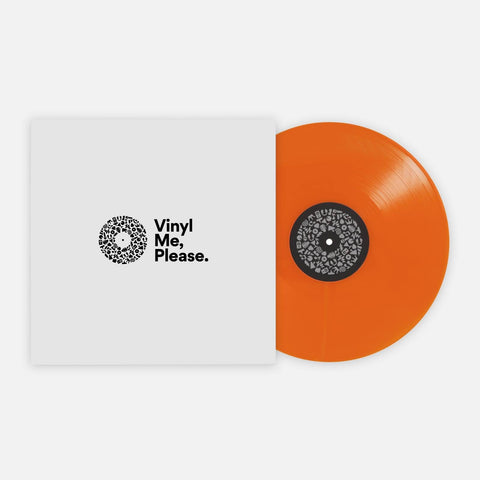Pink Floyd's Animals Turns 40, Is More Resonant Than Ever
On The Band's Secret Magnum Opus
Pink Floyd's Animals turns 40 today. Often set aside when considering the band's "best" album in favor of Dark Side of the Moon or The Wall, we make the case that it's the band's most resonant album.
I'm just going to get this out right from the start: I think The Wall, that towering conceptual blockbuster that is often heralded as not only Pink Floyd's, but one of time's greatest masterpieces, is a mostly unlistenable slog that ranks amongst the band's least enjoyable albums.
Are you still with me? Listen, it's not that I don't enjoy my fair share of self-important, isolationist rock operas, it's that I just find the way Roger Waters, the group's latter-period creative lead and/or dictator (depending on who you ask), applies his schtick on The Wall particularly insufferable. Nevertheless, I know my conviction isn’t built on a particular consistent set of ideals; the thing is, a lot of what I hate about The Wall could also generally be said about Animals, the best Pink Floyd album. They are both sprawling epics that use rock and roll as a means of dramatic storytelling, each taking aim at the society around them and offering cynical, cyclical conclusions. But the approach in reaching these ends differ immensely for each, and accordingly the results offer diverging experiences.
Animals--which turns 40 today-- like The Wall, applies the band’s musical virtuosity to serve a larger narrative, but it's not guilty in the same way of implying that its concept inherently validates its quality. You can listen to *Animals *without getting bogged down in the band's ideology – the politics aren't the performance. While some would consider the ability to tune out the message a weakness of the album, this duality, like the George Orwell allegory it's loosely based on, defines the skill of craft. Animals works on levels – operating like a single beam of light that when passed through the right lens reveals the multitude of worlds contained within.
Furthermore, The Wall is inarguably defined by its high points — no one enjoys listening to “Don’t Leave Me Now” or “The Trial” as much as they do “Comfortably Numb” or “Another Brick In The Wall, Pt. II.” Animals gets across its message without wasting a single moment of music, and it is by no means less ambitious in its songwriting. The band traverses a number of styles and moods within each song, constantly redefining the soundscapes they construct, but never losing sight of the larger impression, all while delivering an endless stream of unforgettable moments.
These moments are stratified across a suite of three compositions, prefaced and concluded by the roughly three minutes that comprise mirrored tracks “Pigs on the Wing 1” and “Pigs on the Wing 2,” which together are prime, unadorned Rogers poetry. However, the bulk of the album is contained within the other 39 minutes, spread across the trio of epics named after the respective animals that Rogers’ uses to broadly depict different classes of society, tied together by a narrative of control, revolt, repeat.
The first of these is "Dogs,” which declares the band’s grand intentions with David Gilmour’s burning opening salvo. “You got to be crazy, you gotta have a real need/ Gotta sleep on your toes and when you’re on the street/ You got to be able to pick out the easy meat with your eyes closed,” Gilmour barks, his sole vocal performance on the record, chewing off the ends of each word in the rhyme scheme in his embodiment of the canine himself. He continues from there to offer suggestions of malice as a necessity to survival, defining the titular personality type by their self-serving depravity. In spite of the subject matter, it all sounds unwaveringly beautifully, with delicate vocal harmonies and softly muted cymbal crashes fading in and out of RIchard Wright’s sweeping synth work. And then that piercing, golden guitar tone bursts out like the plume from a supernova and just lights it all in into sanctimonious oblivion.
Let’s talk about that guitar work, because while "Dogs" is one of Gilmour's few major contributions to Animals, it's the most important feature of the entire album. If the band decided to forgo the other songs and just extend Gilmour’s guitar soloing to the forty-minute mark, this would still be one of the best Pink Floyd albums. He’s that good here — playing wildly with space and melody, but most significantly tone.
Yet for all the rightful positioning as “Dogs” as the moment Gilmour swept Animals from Rogers’ creative chokehold, it’s not his only momentous creative breakthrough on the album. “Pigs (Three Different Ones)” finds the guitarist employing a talk-box that makes his instrument embody the squealing of a hog while simultaneously sounding like God moaning through a ventilator. It’s equally thrilling in its holiness as it is for its raw desperation, and cohabitates sublimely alongside the rest of the song’s clacking percussion and Rogers’ scathing delivery of the song’s recurring lyric, “Ha ha, charade you are” in reference to the political leaders he vengefully skewers. Meanwhile “Sheep” is defined by an idle keyboard, a bassline marching along like a drummer boy trailing a battalion, and once again, some truly epic guitar work. Pink Floyd often flirted with sci-fi dystopia in an abstract sense, but "Sheep" sounds like it was recorded specifically to be the highlight of any “Laser Floyd” show.
In the late ‘70s, Pink Floyd were called out as representative of an aging strand of the dominant mainstream that, if not naturally on its way out, was getting heckled from burgeoning punk scenes to speed up the process. But while much of the heralded classic rock from that era was indeed dated on arrival, and has subsequently aged as tired or tiring – and Pink Floyd is no exception – Animals immediately refuted any criticisms of a band out of touch. Roger’s was at his most urgent – sneering and howling with more volatility than any sloppy three-chord punk song at the time. The band plays their classic rock grandiosity in a manner that rivaled that of any of their previous works, yet it’s perhaps the most natural they’ve ever sounded doing so.
And Animals maintains its instinctive power to this day. Perhaps it's because while Rogers was taking a stab at then-present UK social dynamics, his attacks work largely as general diagnoses of universal human faults. The existence of metaphorical “pigs” and “dogs” is as much a reality now as it was in late ‘70s Britain, if not more evident as the evil of our time loses all traces of subtly and further presents itself in startling transparency. What’s remarkable about revisiting the album today is how Animals reflects so well the contemporary animosity that's bred from a modern era of incessant uncertainty. Only days before the album's 40th anniversary, the US officially inaugurated a reality star to the nation’s highest office. The message endures, because the message has proven throughout history its innate, unfortunate timelessness.
Animals doesn't contain any answers, yet it's relentless in its indignation, wearing mankind’s collective embarrassment louder than any other political commentary at the time. The mentality of punk rock has always been "Us And Them" as separate entities, but in many ways our enemies are a reflection of ourselves, and their antagonistic presence is a mark of the failure of inclusive ideals. Despite all the vitriol he spews, Rogers ultimately ends the album hopefully resigned, admitting: “You know that I care what happens to you/ And I know that you care for me.” Animals is as bitter and accusatory as the records that provoked it into existence, but its greatest innovation was in being angry for all of us, expressed with the transcendent depth that are Pink Floyd’s unflinching terms.
Pranav Trewn is a general enthusiast and enthusiastic generalist, as well as a music writer from California who splits his time between recording Run The Jewels covers with his best friend and striving to become a regular at his local sandwich shop.
Join the Club!
Join Now, Starting at $36Pages







